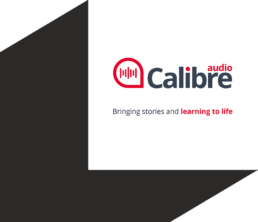
Calibre Audio
Calibre Audio provides a fantastic collection of over 19,500 audiobooks for people living with a print disability (which is any health condition, disability or learning difference which impact on the ability to read print). Everyone has the legal right to equal access to information, yet less than 10% of print books are converted to audio, the format needed for many disabled people. For young people, this has serious implications for their ability to learn and develop. At Calibre, we believe in social inclusion and the wider benefits that reading brings, reading through listening can combat social isolation as well as increase confidence and independence.
Membership is completely free for children and young adults under 25 years, and gives unlimited access to our audiobook library 24/7 all year round. Our collection is full of leading contemporary children’s authors, including Michael Morpurgo, Jacqueline Wilson, J.K Rowling, Malorie Blackman, David Walliams, Phillip Pullman – as well as classics.
Research carried out by Calibre Audio and the University of Bedfordshire has shown that guided reading groups where students listen to an audiobook whilst following along in the printed book, increases their enjoyment of and engagement in reading and contributes to better attainment levels in the longer term.
The National Literacy Trust’s research in 2024 showed that 1 in 2 children said that listening to audio helped them feel relaxed when they were stressed or anxious; and almost 2 in 5 said that listening to audio had sparked their interest in reading books.
We are currently researching the impact of using audiobooks alongside print books in schools for children with SEND who are not meeting age-related expectations for reading.
In our pilot study we provided free audiobook membership to fourteen primary schools, so that children with SEND could enjoy accessing stories as part of a small weekly intervention, to assess if this would have any impact on reading enjoyment, confidence and on reading age. The model we piloted in Buckinghamshire schools was aimed at neurodivergent children who struggle to read print, mainly year 6 pupils. Most have dyslexia and / or ADHD or autism. Groups of between six and eight pupils in each school listened to the audiobook together while individually following the print version. The project took place over a single term and produced very encouraging results. Comprehension improved, engagement with / enjoyment of reading (listening) increased hugely: 71% of pupils whose reading ages were assessed improved significantly, on average by 8 months; 40% saw their reading age improve by 12 months; and 20% by 15 months.
